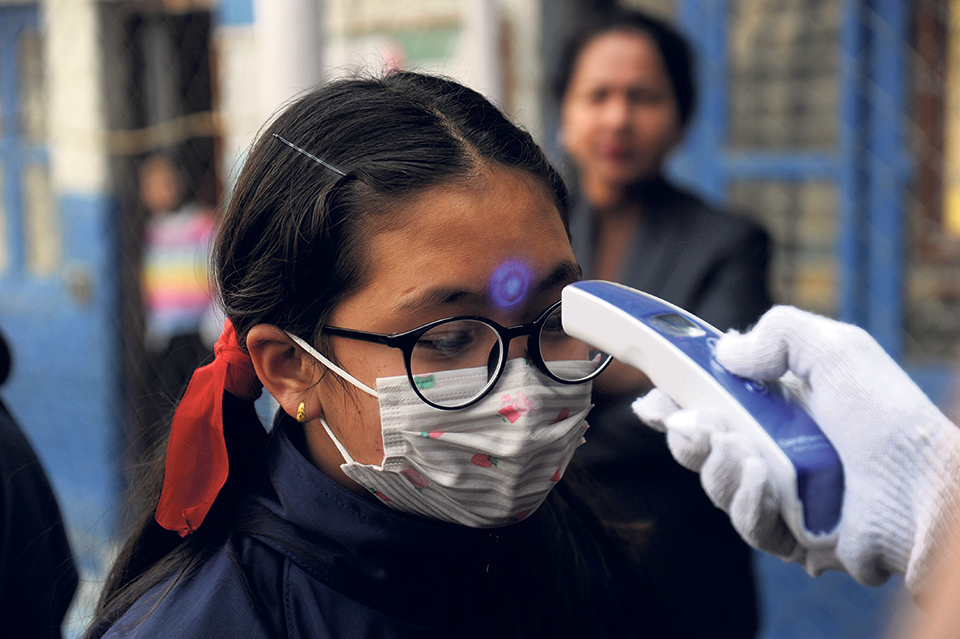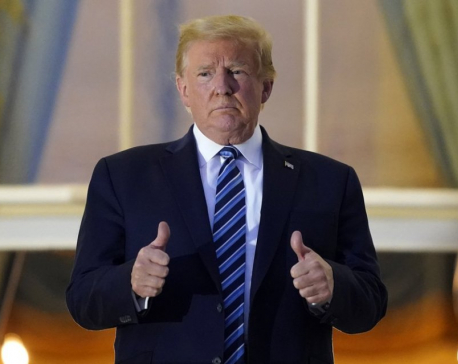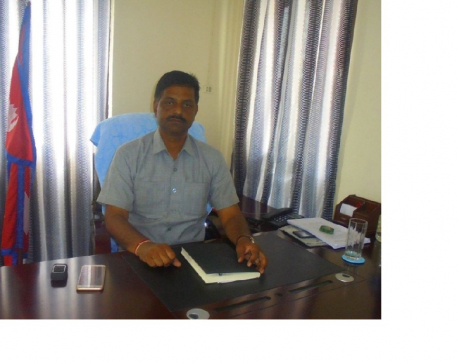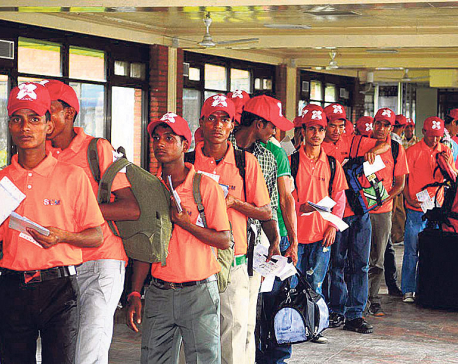
OR
Govt lab can test only 500 cases a week for COVID-19
Published On: March 12, 2020 01:20 PM NPT By: SHREE RAM SUBEDI

24 hours call center to be operational from Friday
KATHMANDU, March 12: The government is slated to operate 24-hours call center to respond to public inquiries regarding the COVID-19 coronavirus from Friday.
“The preparations will be completed Thursday, and we will be able to operate the call center from Friday,” Dr Basudev Pandey, Director of Epidemiology and Disease Control Division under the Department of Health Services, said.
As per the government’s 33rd situation report, as of March 11, a total of 447 individuals were tested for COVID-19 in Nepal, out of which, 446 were found to be negative and 1 positive, who has recovered already. Those tested also include 185 Nepalis rescued last month from Wuhan, the epicenter of COVID-19.
All of the coronavirus tests being used by public health agencies and private labs around the world start with a technique called polymerase chain reaction, or PCR, which can detect tiny amounts of a virus’s genetic material.
Nepal’s National Public Health Laboratory is also following the same method, which takes at least 2 days to give the result. The method also requires a lot of reagents, which are very expensive, according to officials.
Nepal’s government-owned lab can test only 500 individuals for suspected coronavirus disease (COVID 19) in a week, thanks to the lack of the laboratory, human resources and reagents for the test.
“We currently have test-kits or the primers to investigate 500 individuals in a week,” director of Nepal’s National Public Health Laboratory, Dr Runa Jha said. However, she claimed that the capacity can be increased to 4,000 per week immediately with the adjustment of human resources and budgetary assurance.
“We have already taken permission to procure crucial chemicals for 2,000 tests through a fast-track procurement process,” she said, adding that the WHO has also committed to providing additional kits, if required,” she said. Officials concerned have also been requesting with higher authorities to simplify the procurement process as the existing public procurement is lengthy.
In a meeting with the Chinese ambassador to Nepal at the Ministry of Culture, Tourism and Civil Aviation on Tuesday, the authorities have also requested the northern neighbor to provide rapid test kits, which are reported to have been developed in China. However, these kits, which can detect the virus within 2/3 hours have yet to be approved by the WHO, according to experts.
“The Chinese ambassador to Nepal has assured us to provide the test kits,” Dr Pandey added.
He also informed that making arrangements for COVID-19 tests at the province level is another challenge in the event of an outbreak. “COVID-19 tests are currently available only in Kathmandu, and there is an urgent need to avail such service outside Kathmandu,” he said.
However, Sameer M Dixit, a public health scientist, says it is better to do the first-phase screening at home itself, arguing that the test kits are necessary for serious cases only. As per the WHO, out of 100 reported cases of COVID-19, 80 can be treated at home, 15 need hospital admission and the remaining 5 need serious treatment on ventilator.
“These test kits are not required for all, they should be used only for serious and worse cases,” he added. “The private labs also can conduct 500 additional tests per week if the government provides them the reagents.”
On Wednesday, the website of US-based Politico magazine reported that US coronavirus testing is threatened by shortage of critical lab materials. “The growing scarcity of these “RNA extraction” kits is the latest trouble for US labs, which have struggled to implement widespread coronavirus testing in the seven weeks since the country diagnosed its first case,” it said.
Last week, the White House acknowledged that the US does not have enough coronavirus test kits as cases of the disease ticked upward on both US coasts, the BBC reported. The Trump administration would not be able to meet its objective of delivering one million testing kits this week, the BBC said quoting US Vice-President Mike Pence.
You May Like This

US President Donald Trump, still infectious, back at White House — without mask
WASHINGTON, Oct 6: President Donald Trump staged a dramatic return to the White House after leaving the military hospital where... Read More...

Minister of Internal Affairs of Province 2 Gyanendra Yadav tests positive for COVID-19
JANAKURDHAM, Aug 6: Minister of Internal Affairs and Law of Province 2 Gyanendra Yadav has tested positive for coronavirus. ... Read More...

Govt decides to lift ban on foreign employment as lockdown measures are relaxed
KATHMANDU, June 20: The government has decided to lift the ban it had placed on foreign employment after the outbreak... Read More...





Just In
- CM Kandel requests Finance Minister Pun to put Karnali province in priority in upcoming budget
- Australia reduces TR visa age limit and duration as it implements stricter regulations for foreign students
- Govt aims to surpass Rs 10 trillion GDP mark in next five years
- Govt appoints 77 Liaison Officers for mountain climbing management for spring season
- EC decides to permit public vehicles to operate freely on day of by-election
- Fugitive arrested after 26 years
- Indian Potash Ltd secures contract to bring 30,000 tons of urea within 107 days
- CAN adds four players to squad for T20 series against West Indies 'A'













Leave A Comment